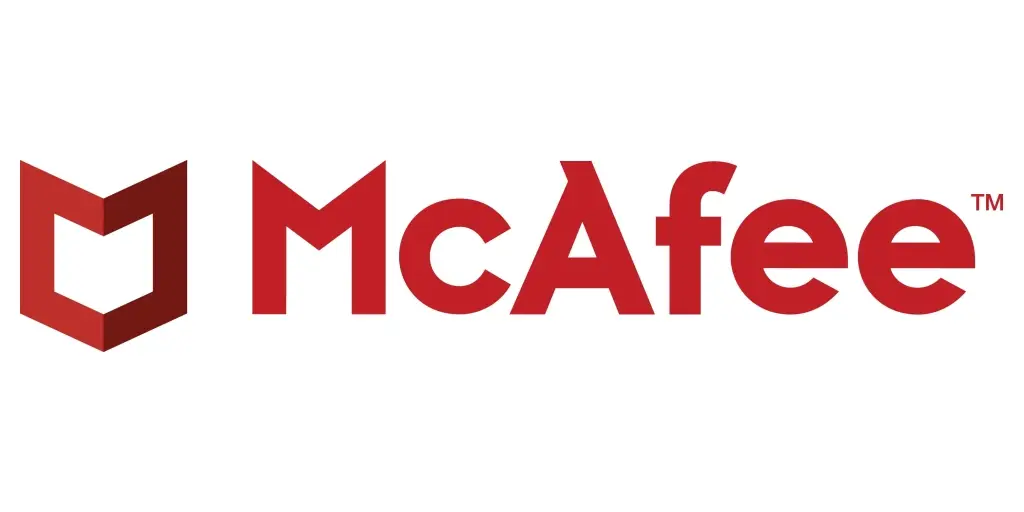McAfee Labs Identifies the Top 10 ‘Riskiest’ Global Destinations Used by Cybercriminals to Scam Vacationers When Booking Online
- Nearly 25% of victims lost $1,000 or more on a single travel scam.
- More than 1 of 3 Americans say the rise of AI and deepfakes has decreased their level of trust in planning and booking vacations.
- Berlin, Cyprus, London and Paris lead list of global destinations most often exploited by scammers to lead travelers to malware or risky sites.
SAN JOSE, Calif.–(BUSINESS WIRE)–McAfee Corp., a global leader in online protection, today unveiled its ‘Safer Summer Travel Report,’ along with the Top 10 ‘Riskiest’ Destinations scammers exploit to lead travelers to malware or risky online sites where they could be scammed. The report unpacks insights on emerging trends and scam risks in summer travel, and highlights Americans’ growing concerns over increasingly believable, AI-generated online scams, including deepfakes. The global study surveyed 6,000 adults in the United States, the United Kingdom, France, Germany, Australia, and Japan.
Travelers are planning adventures and staying aware.
According to the report, a vast majority (85%) of Americans are gearing up for travel in 2024 and are willing to splurge more than in previous years. In fact, 45% of people plan to spend more on their vacations compared to last year, and they’re willing to make sacrifices to prioritize travel. Specifically, 43% of Americans will cut back their spending on entertainment like concerts or movies, and 40% will prioritize leisure travel plans over going out to dinner.
However, this enthusiasm for travel comes with growing caution: at a time when 57% of Americans express worries about the proliferation of scams thanks to AI and deepfakes, a third (34%) of Americans say their trust in planning and booking vacations has decreased. Further, they’ve noted that the increasing prevalence of AI and deepfakes makes it more difficult to recognize and avoid scams. This trend points to the need for vigilance as cybercrooks use more sophisticated tactics to exploit travelers.
“As Americans gear up for summer travel, it’s important to strike a balance between the excitement of planning and the need for caution,” said Abhishek Karnik, McAfee Head of Threat Intelligence Research. “Cybercriminals are opportunists and they exploit this peak season to tempt travelers with enticing offers. With the rise of AI, these scams have become more sophisticated and frequent. We urge travelers to maintain sound cyber hygiene, think twice before clicking on a deal that seems too good to be true, and utilize advanced AI-powered security solutions. Doing so will help protect consumers’ vacation plans from potential cyber threats and ensure a safe and enjoyable experience.”
Travelers frequently encounter scams when booking travel.
Americans’ concerns about cyber threats have merit; nearly one in three (28%) surveyed have fallen victim to a travel-related scam, and a significant portion of these victims – nearly 1 in 4 (24%) – have lost $1,000 or more to a single scam.
The prevalence of booking-related travel scams varies significantly by age. While around 1 in 3 (28%) of Americans surveyed say they’ve fallen victim to a travel scam when booking, 40% of Americans aged 18-29 say the same, along with just 13% of those aged 50-65.
The three most common scams travelers encounter while booking a vacation are: fraudulent payments after providing credit card or bank details on a fake site (15%), clicking on a malicious confirmation link from an unknown source (10%), and encountering manipulated holiday destination photos (8%).
The three most prevalent scams impacting travelers while on vacation involve experiences with deposits and services not meeting expectations. Specifically, travelers reported encountering issues with accommodations, where after providing a deposit, they discovered upon arrival that the rental did not exist (13%); providing a deposit for an event or excursion only to find that the provider failed to show up (10%); and pre-paying for excursions that were vastly different from what was marketed (9%).
Travelers should exercise caution when researching “hotspot” destinations.
As part of McAfee’s effort to help consumers stay safe while researching travel destinations online, McAfee Labs compiled a list of the ‘riskiest’ global travel destinations online. These are locations where related online travel searches frequently return unsafe results, leading to potential malware installations that threaten consumers’ data, privacy, and identity.
To identify the top ten “hotspots” for online travel scams, the McAfee Labs team analyzed search results associated with travel-related keywords like “discount,” “Airbnb,” “local cuisine,” and “tours.” Travelers are advised to exercise heightened caution when engaging online regarding visits to these destinations. It’s worth noting, many of them are hosting big events this summer such as the European Football Championship throughout Germany and the Summer Olympics in Paris, France.
- Berlin, Germany
- Cyprus
- London, England
- Paris, France
- Rio de Janeiro, Brazil
- Bali, Indonesia
- Azores, Portugal
- Amalfi Coast, Italy
- Bermuda
- Machu Picchu, Peru
How to Protect Yourself from Online Summer Travel Scams
Before you travel:
- Stay Vigilant: Phishing emails and texts are a common tactic used by cybercriminals to trick travelers into revealing sensitive information or downloading malware onto their devices. Be wary of unsolicited messages claiming to be from airlines, hotels, or financial institutions, especially if they ask for personal information or prompt you to click on suspicious links. With McAfee Scam Protection, you are alerted to suspicious links in your text messages before you click.
- Look Out for Rental Scams: Do a reverse image search on the photos used in the property listing and see what comes up. Scammers sometimes use photos of actual properties that are not for rent, as well as AI-generated images. Read the property reviews. Listings with no reviews are a red flag. In addition, try to validate the site exists by checking to see whether it has been referenced in legitimate media outlets. Also, only communicate on the rental service’s platform, like VRBO or Airbnb.
On vacation:
- Beware of Who You Trust: One of the most common social engineering threats while traveling is impersonation scams. Attackers may pose as hotel staff, tour guides, or even fellow travelers to gain access to personal information or valuable belongings. Always verify the identity of individuals before sharing any sensitive information or handing over personal belongings.
- Understand the Risks: Public networks are often unencrypted, meaning that cybercriminals can intercept data transmitted over these networks putting your information at risk of being compromised. One of the most effective ways to safeguard your data while using public Wi-Fi is by using a Virtual Private Network (VPN) that encrypts your internet connection, creating a secure tunnel between your device and the internet.
- Take Care When Scanning QR Codes: Plenty of restaurants place QR codes on their tables so you can order from your phone. The problem is scammers sometimes tamper with these codes to shoot victims off to scam sites. With McAfee’s Safe Browsing, you can block scam sites associated with bogus QR codes. AI technology automatically scans URLs and alerts you if it’s linked to a scam site.
- Think Before You Post: Sharing your location online in real-time or sharing details about your travel itinerary can make you a target for thieves and cybercriminals. Avoid oversharing on social media, especially when it comes to your whereabouts, and consider waiting to post travel updates until you are home.
For more information about how to better protect yourself online and learn about McAfee’s products and services, visit www.mcafee.com.
Survey Methodology
The survey was conducted by market research agency MSI Research between May 1-3, 2024. An online questionnaire was completed by a sample of 6,000 adults aged 18 to 65 and from six countries. The sample size completed per country is as follows: 1,000 respondents in the US; 1,000 respondents in the UK; 1,000 respondents in France; 1,000 respondents in Germany; 1,000 respondents in Japan; and 1,000 respondents in Australia.
Top 10 ‘Riskiest’ Online Destinations Overview and Methodology
The research was conducted by McAfee Labs researchers between March 11th – 29th 2024, utilizing McAfee WebAdvisor to find risky URLs related to a range of popular holiday destinations. This includes web pages delivering malware threats, phishing, or scam content. Researchers queried country-specific search engines from the matching locations with a variety of holiday destination terms and calculated the percentage of risky URLs returned within the search results. The final result of ‘riskiest’ online destinations means the cities and countries that are popular search subjects and therefore key targets for cybercriminals when creating phishing and other online scams.
For more details on the research methodology, please contact [email protected].
About McAfee
McAfee Corp. is a global leader in online protection for consumers. Focused on protecting people, not just devices, McAfee’s consumer solutions adapt to users’ needs in an always online world, empowering them to live securely through integrated, intuitive solutions that protect their families and communities with the right security at the right moment. For more information, please visit https://www.mcafee.com.
Contacts






